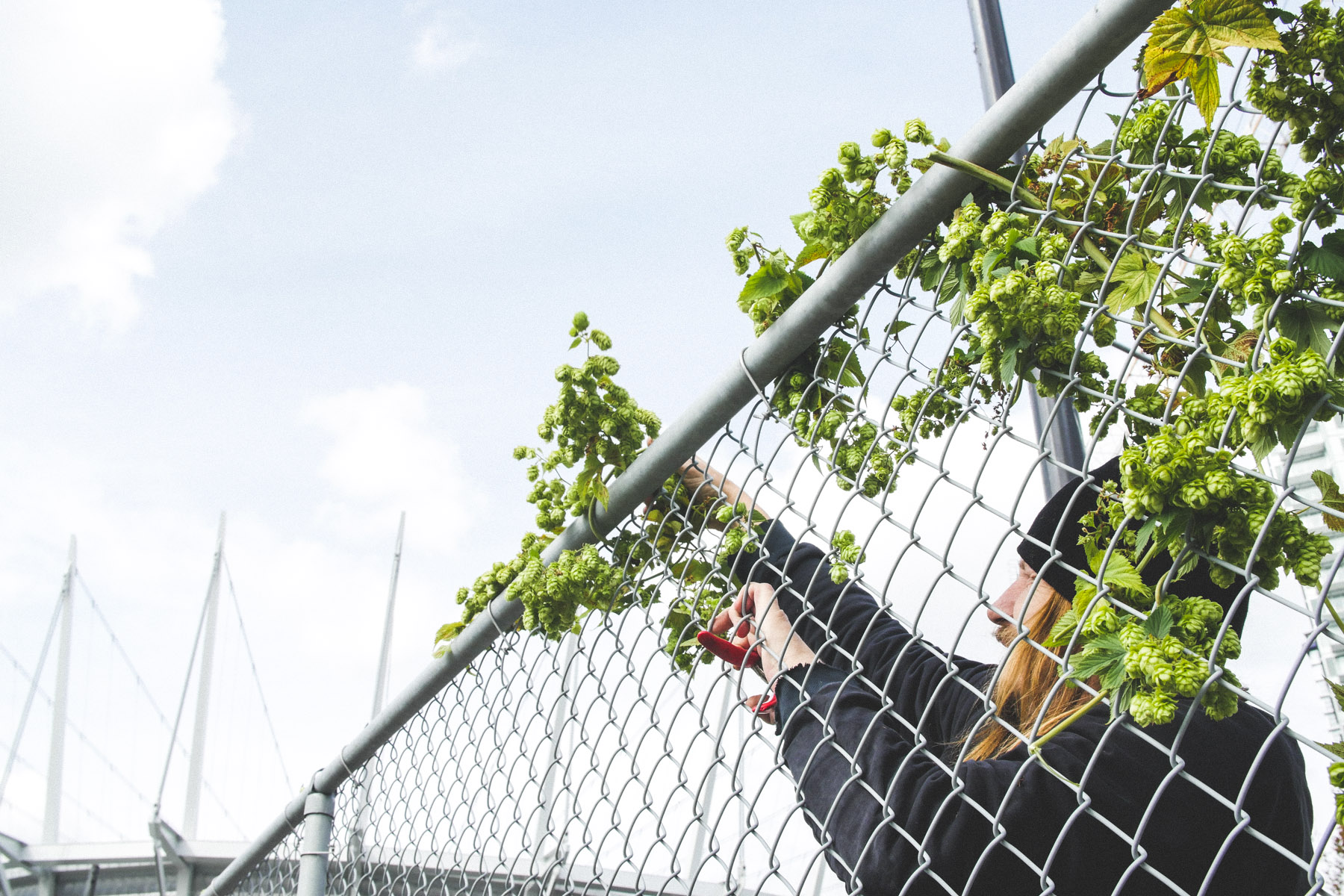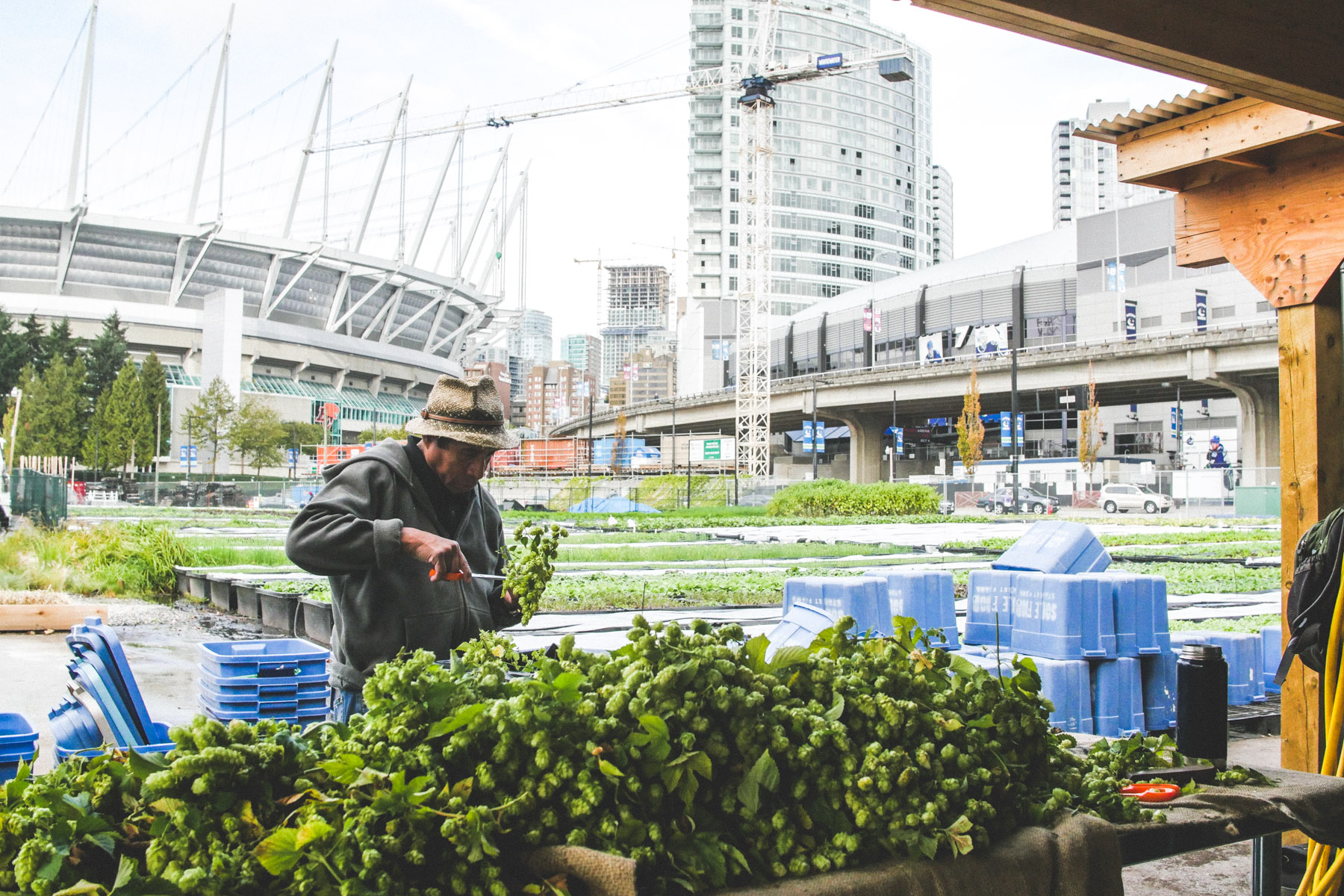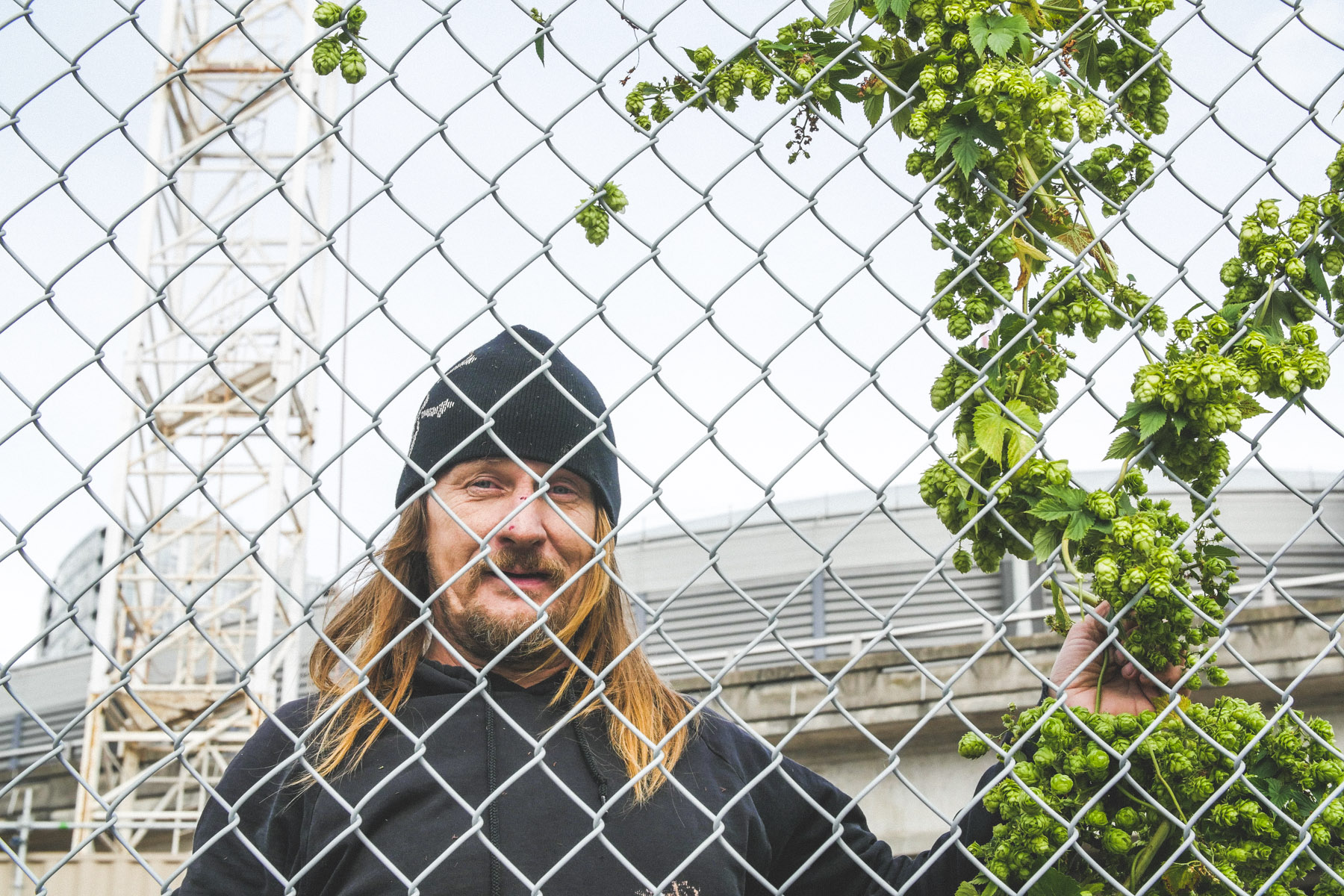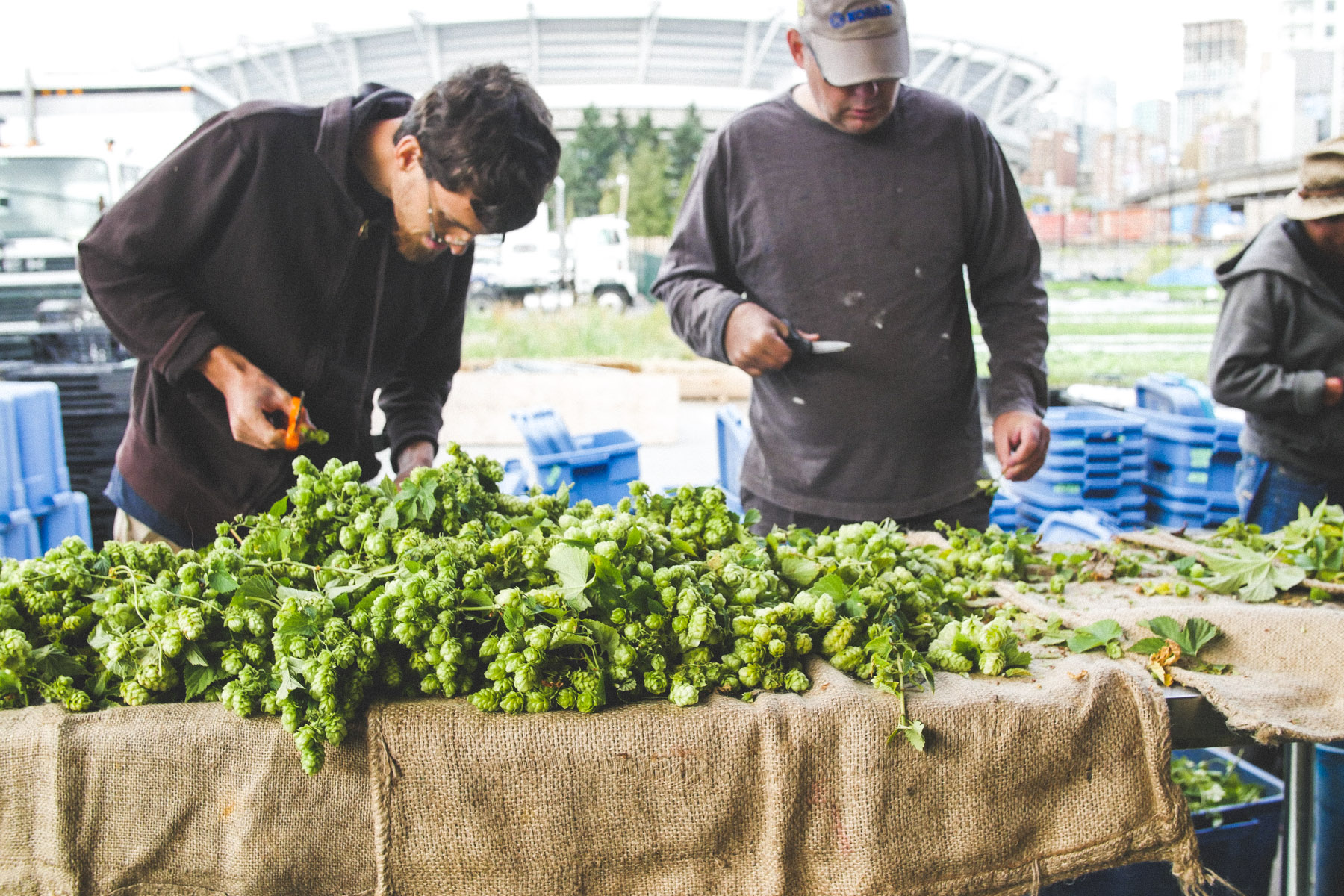“We have one employee who doesn’t have stable housing and never has. He got the job because he was so persistent. He stopped by day after day and just kept asking for work, so we hired him. That’s the kind of tenacity we need. But he’s been in and out of housing, and shelters, and parks. Occasionally he doesn’t show up and he doesn’t call (which is one of our only rules). A couple weeks ago, I gave him a hard time about not calling and he was basically like, ‘you know, I may not be perfect, but this is the best thing I do in life. I am more consistent here than I am anywhere else. This is where I show up.’”
This paints a vivid picture of life by Lissa Goldstein, Director of Operations at Sole Food Street Farms. Sole Food was born from a social goal and a dedication to the development of viable systems for urban agriculture— a “culmination” for co-founder Michael Ableman, who started developing these systems in the 80s. Once vacant urban lots, the productive farming operations rest within the heart of the city (near False Creek, Main Street, in Strathcona and East Van), supplying artisan quality fruits and vegetables on a commercial scale.
Cultivating more than just food, their vision for urban farming includes “provid[ing] employees with a place to learn new skills and an opportunity for self-growth.” Within Vancouver, this system flexes with the “ups and downs of many people with multiple barriers” currently living in the Downtown Eastside. The nature and hours of work at Sole Food may vary, but the dedication to the job and how that is instilled is no different. Show up, work as fast as you are talking, and as a team, work to produce a quality product that can be shared with the community. Providing produce for some of Vancouver’s top restaurants, the quality that is produced is paramount, and they are committed to supplying only the best. It’s the receptiveness of these places, and their efforts to “incorporate some if not all local producers,” that helps fuel the project and run the business, says Lissa.
We are all impacted and play a role in social enterprise. Lissa continues, “Larger restaurants can make a big difference by shifting just 10% of their purchasing to local food suppliers. And the same is true of the social employment model. Why can’t more businesses hire one or two employees who are facing some sort of barrier?” The suggestion to make room in the workforce for people on society’s margins is her (and many other’s) plea for balance, for the many “hundreds of people out there in the Downtown Eastside would like to be working, or be a part of a community project.”
At 33 Acres, we approached Sole Food and asked if they would work their magic and grow some hops for us. The team was so excited to see the plants evolve over the past year and a half, noticeable when we would go down to check on them and many questions and comments would be made about the anticipation of their arrival. When it came to harvest time you could sense the fulfillment that can come from seeing something start and struggle through unexpected change and growth. Michael goes on to emphasize that local collaborations like this, provide a “fantastic opportunity to collaborate with other really innovative and high quality enterprises in the city.”
The power at the heart of this all is acknowledging the strength of an individual, on a micro level and the cyclical impact that has to a community, on a macro level. This is present here when individuals not only “show up” but start to also build there own internal community, inspired by their roles at Sole Food. Recently the staff came together and decided to hand out the left over staff produce at the Downtown Eastside market on Sundays, for free. As Lissa shares the story, she is quick to mention it had nothing to do with management and everything to do with the team’s feeling of ownership of the project and their independent desire to contribute.
“I don’t know of anything of this scale happening anywhere else than what we are doing in Vancouver,” Michael concludes, “people [can] judge the success of the project for themselveves. It takes great courage and I give credit to the individuals who have improved lives for themselves…we just set the table for wonderful things to happen.”
Sole Food Street farms is a charity with values and a strong social impact we stand behind. The teams commitment to community and drive to create meaningful employment, is what led us to them in the first place. The result of our hop-collaboration, 33 Acres of Sole is an urban farmed fresh-hop bitter, proudly cultivated in the heart of the city. Available now, in the tasting room only, where a portion of profits from glasses and growler sales, will be donated to Sole Food directly.




